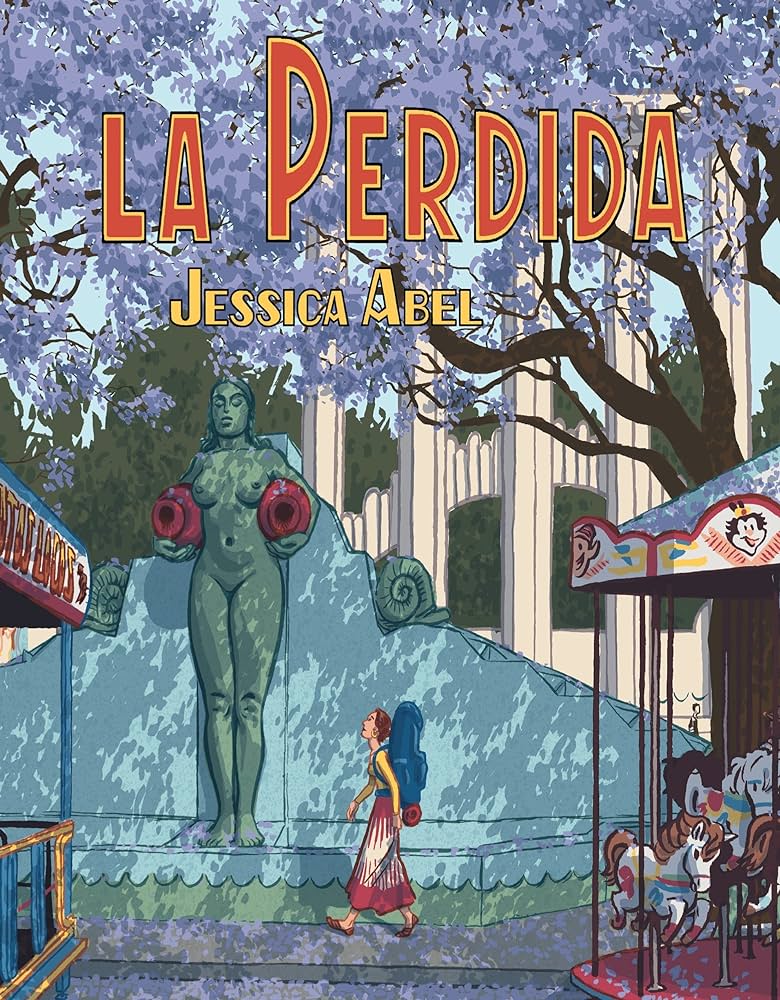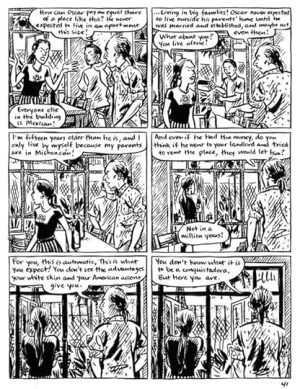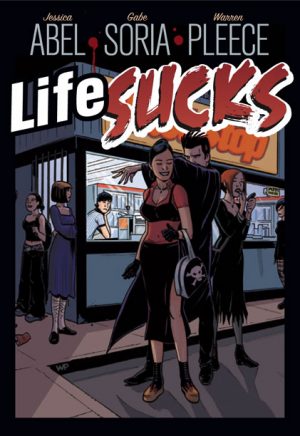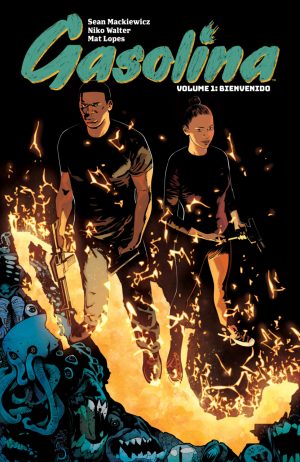Review by Diego Guerra
La Perdida (The Loss) begins in Mexico City in 1999. It’s a difficult time as drug cartels have gained immense power, sowing violence and corrupting the police to unimaginable levels. Express kidnapping has become frequent. These are extortionate kidnappings demanding substantial ransoms from victims’ families within very short periods, one or two days, with the threat of killing the hostages. Cartels have established infrastructures making this sinister business feasible, and the law seems unable to combat them, or rather, law enforcement officers are part of the business. Additionally, Mexico grapples with high levels of poverty and social inequality, but the city is beautiful, and vibrant, with fun music and delicious street food.
Carla arrives in search of her roots as her Mexican father never brought her here. She initially stays with a former American boyfriend leading a bohemian life, detached from the real Mexico. Still, Carla aims to break through this barrier and discovers an intriguing world full of life. When her return ticket to the USA expires, she stays behind, teaching English and taking up a Mexican boyfriend, Oscar, who sells drugs to tourists and dreams of becoming a DJ. She befriends Memo, a T-shirt vendor with extreme political views and a knack for charming tourists. Carla believes she is integrated, but, when her brother visits he shows her a side of Mexico she doesn’t know, and she realises her brother succeeded in breaking through the barrier.
Carla doesn’t want to return to the United States, preferring to integrate into a society that views her as a foreigner. One day, a minor indiscretion by Carla with her so-called friends leads to the tragedy of an amateurish express kidnapping extending for days into weeks, becoming a sinister and sordid story. The turn of the century arrives, and Carla is immersed in a pit that seems impossible to escape.
Jessica Abel’s previous work was largely short slice-of-life stories, tales of young people facing everyday challenges. La Perdida is a more ambitious work in length and depth. Carla’s status as a young woman uprooted and searching for answers in Mexico, transforms from a regular portrait of daily life into a full-fledged neo-noir, highlighting the mistakes made when trying to find easy solutions to difficult problems. The tone is so naturalistic that an autobiographical element is sensed. Abel lived in Mexico with her husband for over a year, and perhaps that’s why the city feels so real and authentic. However, Abel does not share her protagonist’s naivety. Instead she possesses the insight to interpret the clash of cultures between two neighbouring yet vastly different societies. She keenly understands a country marked by social injustices while recognising misguided ways of addressing these injustices.
La Perdida is an extensive narrative that never feels long due to well-crafted storytelling. The entire cast are interesting, complex, and well-developed. Memo stands out in particular as a hypocrite and despicable, yet an absolutely memorable character. The simple drawings adapt their tone when the story demands it, becoming darker or lighter according to what’s conveyed, and act like a camera following people during their endless conversations, making the drawn characters feel real.
This is an original, unusual, sad, but engaging book from start to finish.





